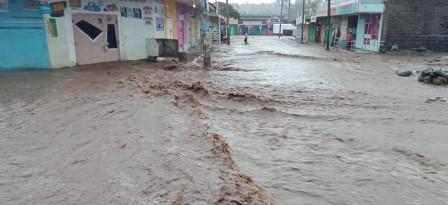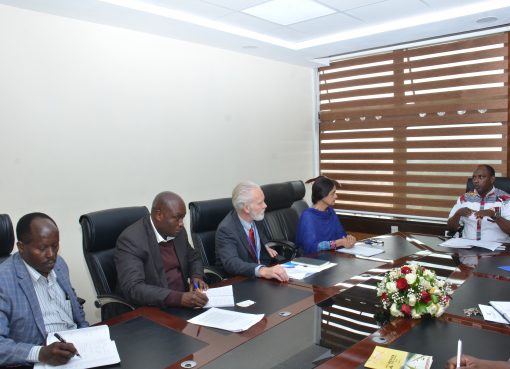The World Vision has partnered with the County Government of Homa-Bay and other stakeholders to restore and re-green the degraded land within the region.
Speaking on Tuesday during a stakeholders meeting held in Homa-Bay town, the County Acting Director of Environment, Stacy Atieno disclosed that the county has encountered irregular rainfall thus leading to lower yield due to human activities.
Atieno added that human activities such as sand harvesting, charcoal burning and cutting down of trees to burn bricks have degraded the land leaving it bare, citing areas like Karachuonyo and Gwasi hills respectively.
The director further regretted that Karachuonyo is the worst affected area in degradation and called on the people within the region to find alternative means of livelihood which can bring food on the table rather than cutting down trees for burning bricks and sand harvesting.
At the same time, Atieno revealed that her department has drafted a climate change and water policies saying that once the Assembly approves them they will help in controlling the environmental degradation.
She called on the public to adhere to the rules and regulations of National Environmental Management Authority (NEMA) for Lake Victoria waters to be good for their domestic use.
The officer reiterated that they are going to do sensitization on sand harvesting and develop a sand harvesting policy to regulate its activities.
On his part, the World Vision Coordinator for re-greening Africa Kenya Project, Tom Nyongesa said that the main goal for the project is to ensure food security, improve household income and to restore degraded land.
Nyongesa added that the project covers three wards within Homa-Bay County, citing Ruma, Kaksingri East and West and Lambwe both in Suba North and Suba South respectively.
He said that through their partnership with Homa-Bay County Government they have been able to identify land degradation challenges in Karachuonyo, adding that they are ready to work together with other groups that are interested in environmental conservation such as Oriyema.
The Project Coordinator further revealed that they will support these groups through capacity building, re-greening approaches with an aim of improving the forest cover which is currently standing below 3 per cent.
While Tobias Odeny, a project coordinator for Oriyema Land Rehabilitation and Tree Planting in Karachuonyo appealed to the government to come up with a mechanism for any person who degraded the land to ensure that it is re-greened before relocating to a new area.
Odeny said that the aim of their project is to empower the community through farming and to recover the land to be agriculturally sustainable.
He therefore sought for financial assistance from the County Government to help them champion the gospel of restoring the degraded environment by empowering the community.
By Davis Langat/Anne Onyang



